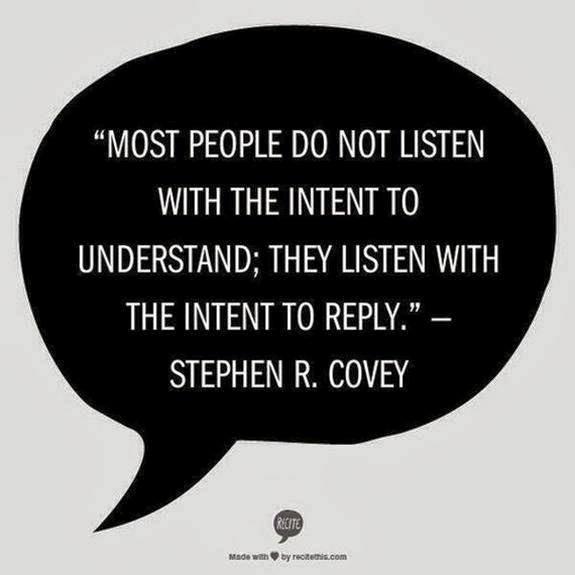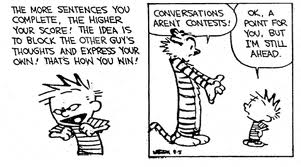Newsletter November 2013 – Are you listening? Really Listening?
November 15, 2013 By Hester Bergh-Appoyer No comments yet

…which could explain why, so often, there are misunderstandings in communication!
Have you ever thought about how you listen, or about your particular listening style?
Do you listen attentively, or are you unconsciously listening competitively?
Let me explain.
Competitive or combative listening happens when you are:
- more interested in promoting our own point of view than in understanding or exploring someone else’s
- evaluating and making judgements about the speaker or the message
- listening to your own personal beliefs about what is being said
- you are waiting for a gap and formulating your rebuttal while “listening” with those “yes, but…”?

OR, are you listening passively or attentively?
This is a genuine interested in hearing and understanding the other person’s point of view BUT we assume that we have heard and understand correctly and therefore stay passive and don’t check what we have heard. The “aftermath” of not having verified, clarified or checked understanding usually occurs sooner than later.
Active or Reflective listening is the single most useful and important skill to listening.
To listen effectively, we must be actively involved in the communication process. In active listening we are:
- genuinely interested in understanding what the other person is thinking, feeling, wanting or what the message means
- active in checking our understanding before responding by restating or paraphrasing our understanding of the message and reflecting it for verification. With this verification or feedback process a misunderstanding is identified immediately, and can be clarified before any further misunderstanding occurs.
This is what distinguishes active listening and makes it so effective.
Active listening skills enhance and support workplace productivity and harmony in that:
- tasks and expectations are understood
- rapport with co-workers, bosses and clients is established
- resolves problems and conflicts between co-workers, bosses and or customers quickly
- answers questions and finds underlying meanings in what others say.
So what to do? Become an effective listener by practicing active listening and turning it into a successful communication skill.
You can also acquire more communication tips and tricks by attending one of our seminars or getting personal communication coaching. Don’t forget, if you “don’t have the time” we can “meet” on Skype. Contact me now.
Wishing you an awesome November

Search
Recent Posts
Recent Comments
- Hester Bergh-Appoyer on “I Want” and “I Will” – The Power Of (The Right) Words
- Hester Bergh-Appoyer on Brain Massages and Insights – How To See The Big Picture!
- Bennefield on “I Want” and “I Will” – The Power Of (The Right) Words
- Jolene Butler on Brain Massages and Insights – How To See The Big Picture!
- Hester Bergh-Appoyer on Goodbye Goa!
Archives
- November 2020
- January 2020
- September 2019
- May 2019
- March 2019
- August 2018
- July 2018
- May 2018
- April 2018
- March 2018
- February 2018
- January 2018
- July 2017
- June 2017
- May 2017
- March 2017
- February 2017
- January 2017
- December 2016
- October 2016
- September 2016
- August 2016
- May 2016
- January 2016
- October 2015
- June 2015
- February 2015
- January 2015
- December 2014
- September 2014
- June 2014
- May 2014
- March 2014
- February 2014
- January 2014
- December 2013
- November 2013
- October 2013
- September 2013
- June 2013
- May 2013
- April 2013

Leave A Comment